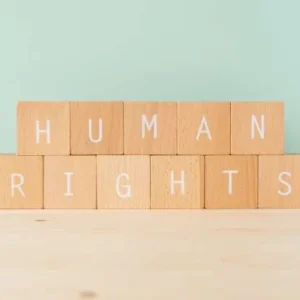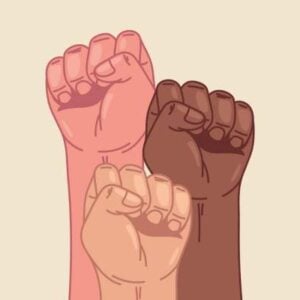Ecuadorian police and security forces have been accused of using excessive force and restricting freedom of assembly in response to anti-government protests that began in mid-September 2025. According to Human Rights Watch, the demonstrations—led by the country’s largest Indigenous organization—erupted after President Daniel Noboa’s decision to remove diesel fuel subsidies, which increased prices by more than 50 percent. While some protesters engaged in violence, most of the demonstrations were peaceful. In response, the government deployed the military, accused protesters of “terrorism,” and froze the bank accounts of Indigenous and environmental groups.
Human Rights Watch verified several videos showing soldiers and police dispersing peaceful protests using tear gas and other weapons indiscriminately. The organization also reviewed documents showing the suspension of media outlets and investigations targeting environmental defenders and Indigenous leaders. Despite the government’s justification that subsidy removal was necessary for fiscal sustainability, the move sparked nationwide unrest. President Noboa declared states of emergency in multiple provinces, limiting the right to protest and authorizing the military’s involvement, a pattern that has drawn criticism for contributing to human rights abuses since he took office.
The Indigenous-led protests expanded into a national movement, denouncing not only the fuel price hikes but also poor access to public services and environmental exploitation on Indigenous lands. Clashes between protesters and security forces have led to at least two deaths and nearly 300 injuries. Verified footage showed instances of security forces firing tear gas at homes and directly at fleeing protesters, actions that violate international standards on the use of force. One protester, Efraín Fueres, died from a gunshot wound allegedly inflicted by soldiers, prompting an official investigation.
In addition to violent repression, the Ecuadorian government has targeted press freedom and civil society. Several community media outlets were suspended for allegedly threatening national security, while bank accounts of Indigenous and environmental groups were frozen based on secret intelligence reports. A new Social Transparency Law gives authorities the power to dissolve organizations and freeze accounts without a court order, raising serious concerns about freedom of association.
Human Rights Watch called on the Ecuadorian government to end abuses, hold those responsible accountable, and engage constructively with protesters’ grievances. The organization emphasized that while violent acts must be investigated, labeling demonstrators as terrorists or restricting civil liberties undermines democracy and the rule of law.






